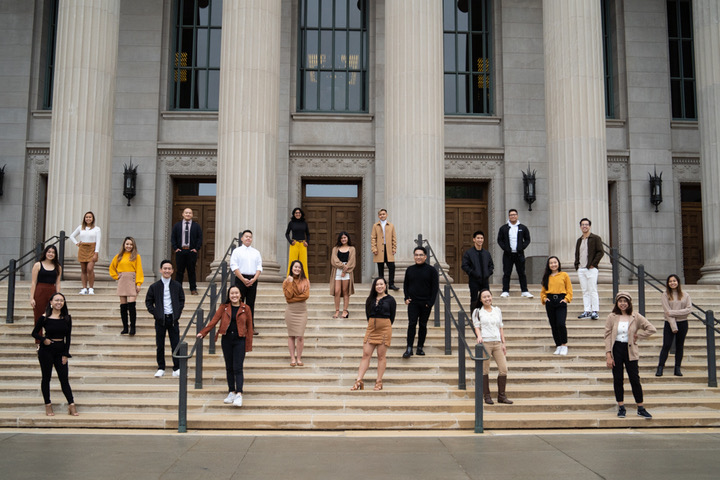The Midwest Asian Pacific Islander Desi American Students Union held their annual conference last weekend to celebrate Asian Pacific Islander and Desi American culture, as well as and spark conversations about social justice issues.
The conference was originally set to be hosted at the University of Minnesota for the first time in March, but was postponed to the fall and held virtually due to COVID-19. Themed “Unwritten,” the MAASU conference was a three-day event of around 330 attendees focused on storytelling within APIDA communities.
The conference included workshops with an emphasis on intersectionality, covering several social justice topics such as identity, queer allyship, intergenerational trauma and allyship with the Black Lives Matter movement. It also included pre-recorded dance performances, an original play by the MAASU board, a fashion show and open mic performances.
Jenny Tam, executive director of the MAASU planning committee, said the goal of the event was to highlight the rich and diverse APIDA representation in Minnesota. The theme “Unwritten” is about understanding that everyone’s stories and histories are intertwined and connected to one another, she said.
“With the large Hmong, refugee and adoptee populations, we really wanted an opportunity to center a lot of these experiences that, even at MAASU, you don’t hear about,” she said.
In light of the presidential election, the police killing of George Floyd and increased xenophobia during the pandemic, Tam said she hopes to use storytelling as a form of healing and activism.
The conference featured two keynote speakers, Sonalee Rashatwar and Saymoukda Duangphouxay Vongsay, who discussed sexual trauma, body image issues and immigrant identities and refugee voices.
Mandy Huang, a conference attendee, said her past experiences with MAASU as a recent graduate and former planning committee member highlighted the amount of work necessary to host and plan such an event.
“I loved working with the planning committee because I got to meet so many amazing people. I want to give a shout out to the old and new planning committees, as they have all put so much time and effort into this conference,” Huang said.
When confronted with the choice of postponing or canceling the conference, Tam said her 40-member planning committee had worked too hard not to be recognized.
“When I think about the work, 100% I couldn’t have done it alone and with the vision, the planning, the execution, the dance we choreographed, the play we scripted, all of that was done by people in our community,” Tam said.
Vivian Pham, former outreach coordinator and attendee of the conference, discussed her past experience with MAASU.
“Being a part of MAASU was incredibly rewarding,” Pham said. “Being able to see the behind-the-scenes work of MAASU was not only interesting, but fulfilling as well.”














